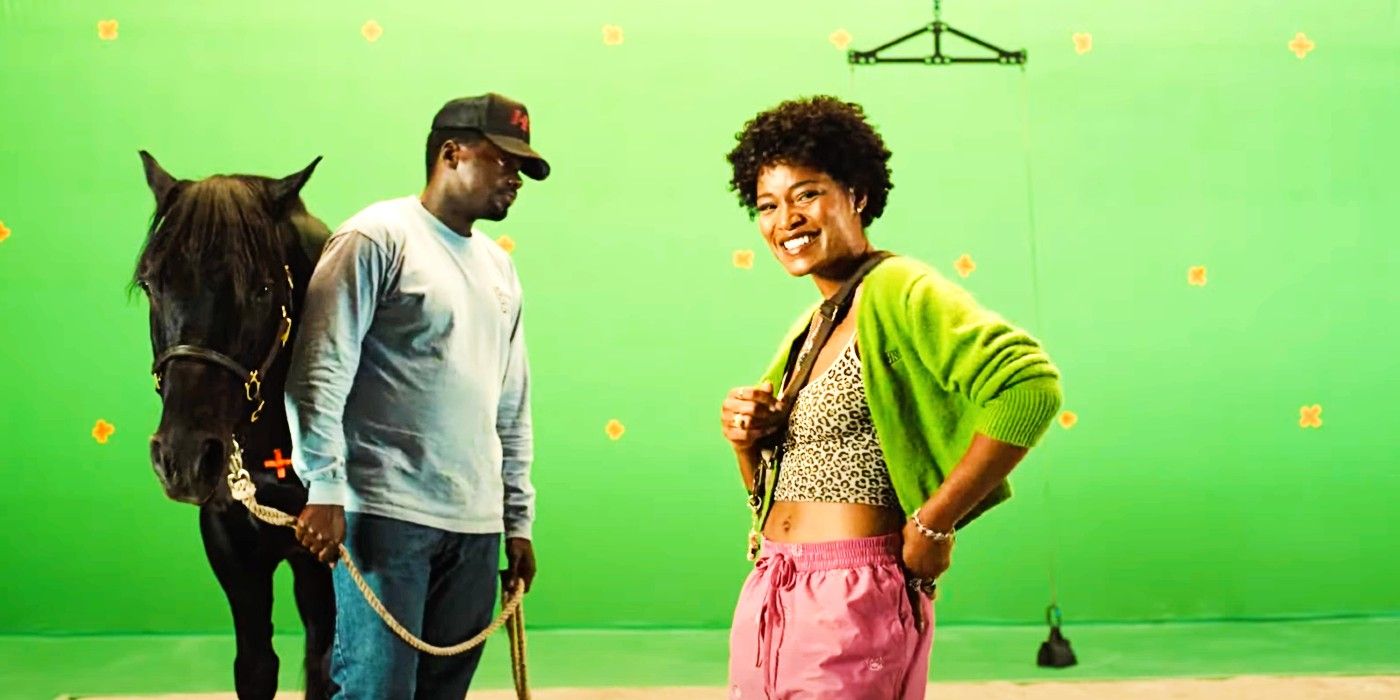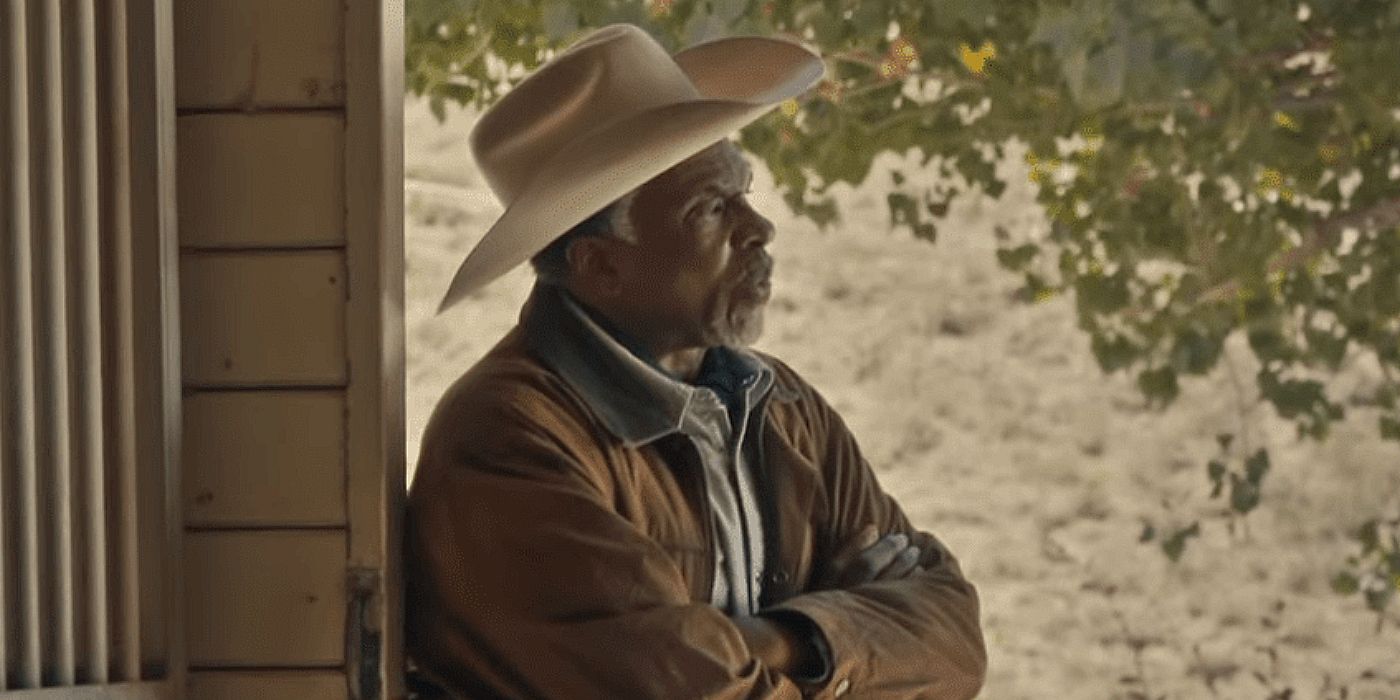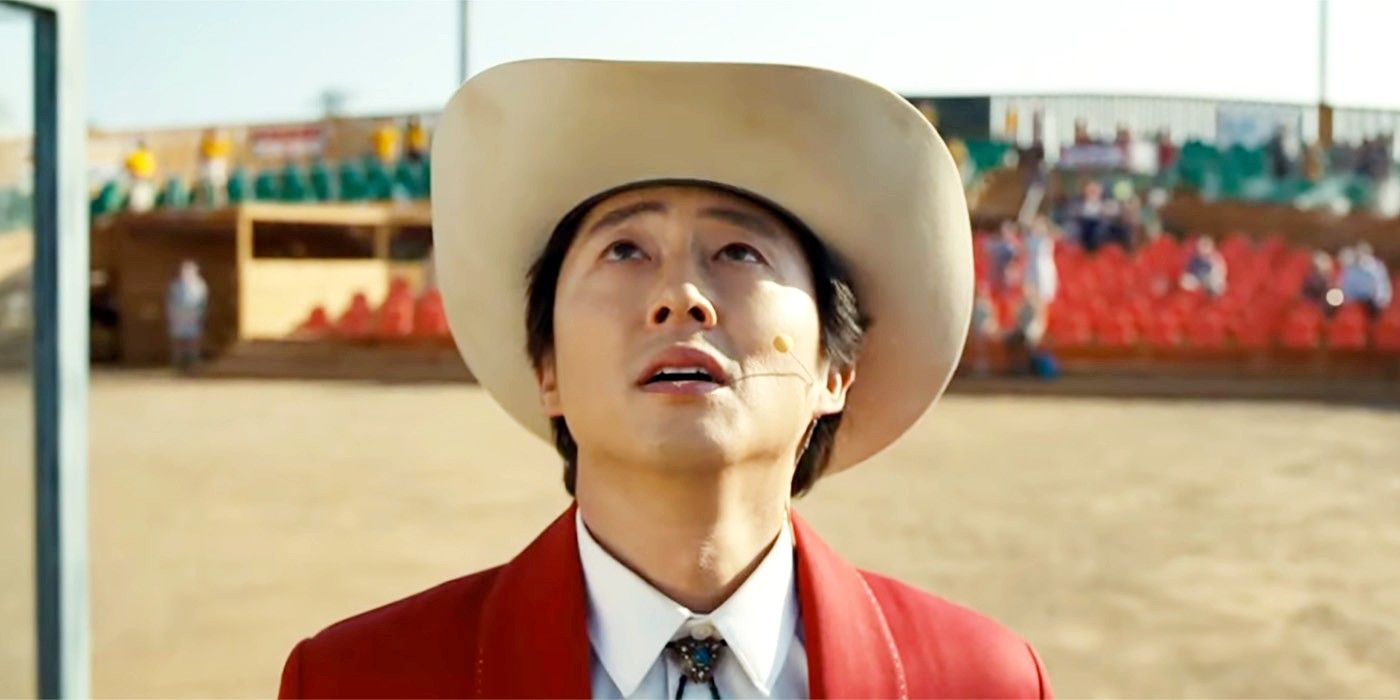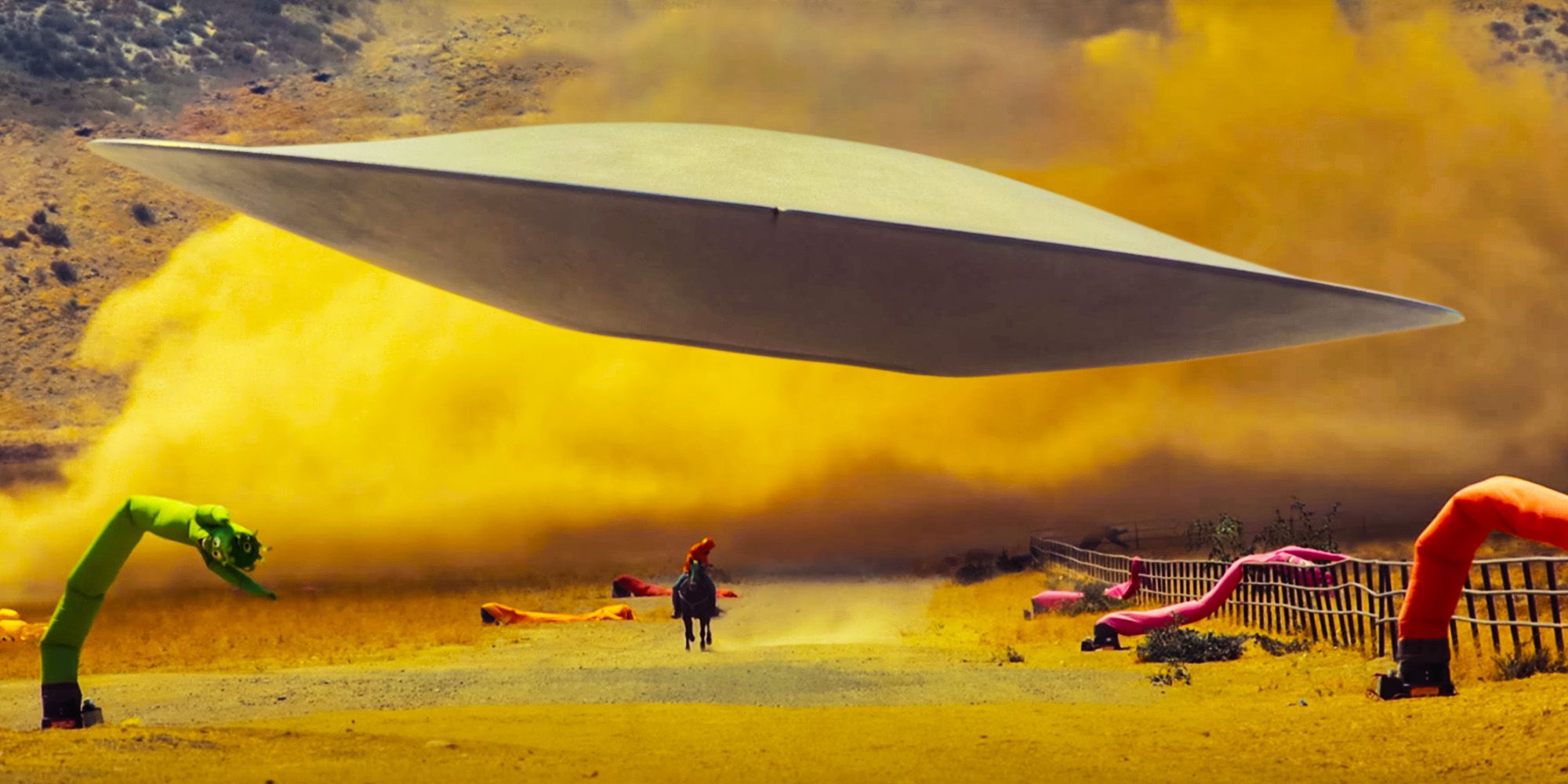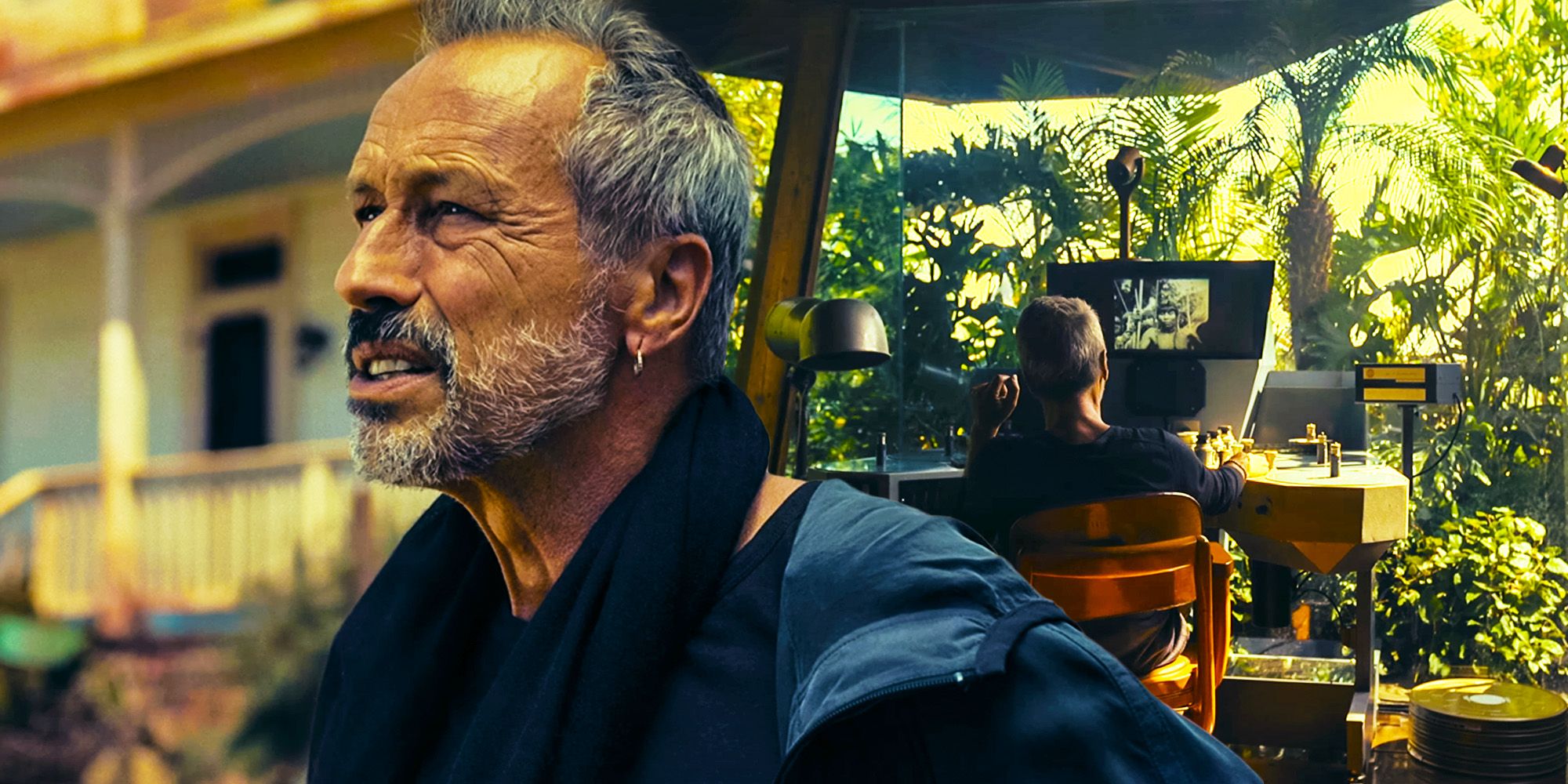Writer/director Jordan Peele is back with his latest movie Nope, and there is a lot to unpack beyond the story told onscreen. If there is one thing most people know about Peele - outside of his success in the world of sketch comedy - it is his love of the horror genre. Peele makes no secret that he is a diehard horror devotee, widely admitting that legendary horror master John Carpenter is one of his biggest creative idols. It is also well-known how much Peele loves Stanley Kubrick's The Shining, with references even making it into several Key & Peele episodes.
While Nope is the least straightforward horror of Jordan Peele's movies to date, there are still overt horror elements in its story - most notably a giant space alien that flies down to consume human beings. Peele has said he has no plans to leave horror behind. That is a great announcement, as Jordan Peele's films so far are all much more intelligent than the average mainstream horror flick.
Nope is no different in that regard, and, as usual for Peele's work, there is a lot more going on than what the plot outwardly boils down to. Beyond OJ and Emerald's quest to get rich in Nope via photographic evidence of UFOs lies a look at things like Hollywood's historical mistreatment of its Black performers and the modern-day societal push to create spectacles that go further and further into the realm of danger. Here's Nope's real meaning explained.
The Haywoods Are Looking For Redemption After Hollywood Failed Them
As Emerald points out in her well-rehearsed and well-delivered introductory speech when on set, the Haywood lineage traces back to the first-ever motion picture, a film of a horse in motion. According to Emerald, a Black jockey was riding atop said horse, and his name was Alistair E. Haywood. The modern-day Haywoods are his descendants, carrying on his legacy via their business Haywood's Hollywood Horses. That should rightly make the Haywood family Hollywood royalty, yet even before the sudden and shocking death of Otis Sr., it would appear that the family business is not doing great.
Movies like The Scorpion King ditched horses for camels, and in many cases, modern filmmakers are choosing to create horses with CGI rather than go through the trouble of having a real animal on set. This has effectively left the only Black-owned Hollywood horse training company struggling to survive, taking work anywhere they can just to keep the bills paid and stay in their home. After Otis Sr.'s death, OJ has to resort to selling off their prized horses to Jupe to make ends meet, not realizing they are then being fed to the alien at the story's center. It's telling how quickly a desperate OJ and Emerald decide to brave possible death to capture the alien on film and get rich. The treatment of the Haywood family by Hollywood in Nope is emblematic of the historical marginalization and mistreatment Black people have faced while trying to make it in the industry and an indictment of how their contributions have often gone unappreciated.
How Nope Turns Trauma Into Exploitation
Beyond the trials of the Haywood family specifically, Nope as a whole can arguably be read as a slam of both the fleeting nature of Hollywood success and the lengths with which people who have experienced that lifestyle will go to try and maintain it. OJ and Emerald deciding to risk being devoured by a monster to earn fame and money is the most straightforward example of this, but there is also Jupe. Like many child actors, Jupe's fame did not last, and he has seemingly been chasing that high ever since.
That is even though he once witnessed Gordy the chimp turn homicidal on his co-stars, an event Jupe clearly has deep unresolved trauma with. Jupe so badly wants to perform and wants the adulation of a crowd that he started the Jupiter's Claim attraction based largely on his childhood role of Kid Sheriff and the notoriety of the Gordy incident. The fact that Jupe was set to likely spend the rest of his life coasting on his childhood accomplishments is just downright sad, but he cannot bring himself to move on.
How Nope's Alien Symbolizes Hollywood
Furthering the Hollywood parallels in Nope is the alien itself, a creature that resembles a flying saucer but is in actuality a Lovecraftian beast looking to turn humans into dinner. Similar to the alien, Hollywood is known for finding talented people, chewing them up, and spitting them out when it has no further use for them. The Hollywood machine then simply moves on to its next hopeful, leaving the previous victim to pick up the pieces of their life.
Sure, there are thousands of successful people who have long-term Hollywood careers at any given time, but they are the exceptions, as millions desperately try to become part of show business. Most fail entirely, but even many that find success see it stripped away not long after, such as Jupe. The fact that CGI is hurting the Haywood horse business is also seemingly a commentary on the plight of practical special effects creators in an age where computers are doing most of the heavy lifting.
Nope’s Big Deaths Prove Society’s Obsession With Spectacles
Following the death of Otis Sr. at Nope's start, Jordan Peele's film contains three more major deaths: Ricky "Jupe" Park, cinematographer Antlers Holst, and a motorcycle-riding reporter for TMZ. All three of these demises occur because the characters are willing to put their lives on the line to create a spectacle. Jupe wants to wow the customers of Jupiter's Claim, so he essentially serves up a buffet of fresh humans - which includes his own family - to the alien while ridiculously thinking he had some kind of deal with the creature.
Antlers is so obsessed with getting the perfect shot that he puts himself in the path of the alien to try and do so, even though he dies and his camera is also destroyed. Antlers' pursuit of the impossible shot in Nope accomplished nothing, but he was compelled to try all the same. Most egregiously of all, the TMZ reporter gets in a motorcycle accident but is too busy worrying about getting images of the alien that he is entirely unconcerned with his own health. Then there are all the news reporters that stay camped outside Jupiter's Claim in the hopes of doing live coverage of something unusual. Nope's world is ruled by the desire for showmanship, and, sadly, it appears to speak mostly truth regarding contemporary Hollywood.

